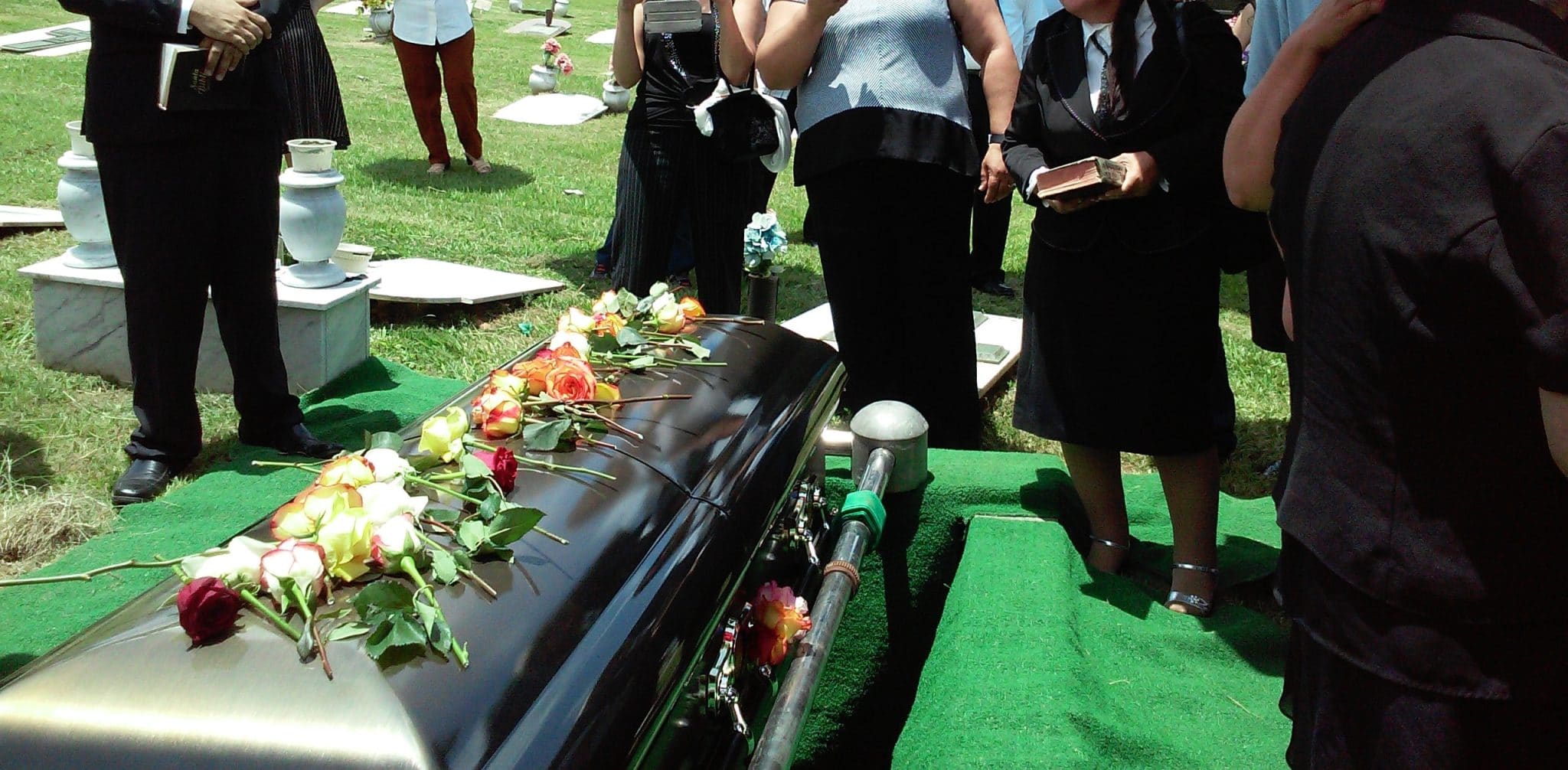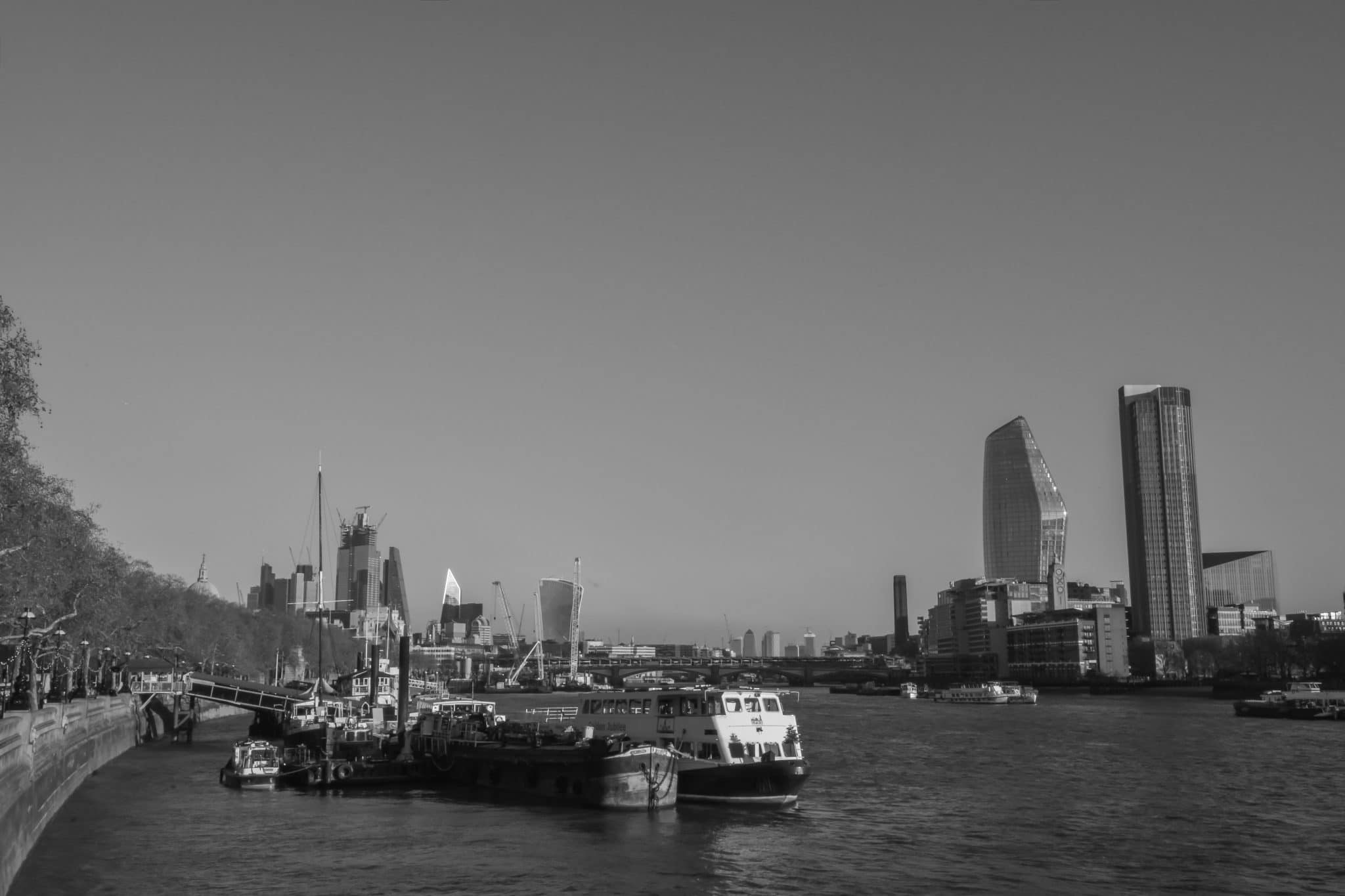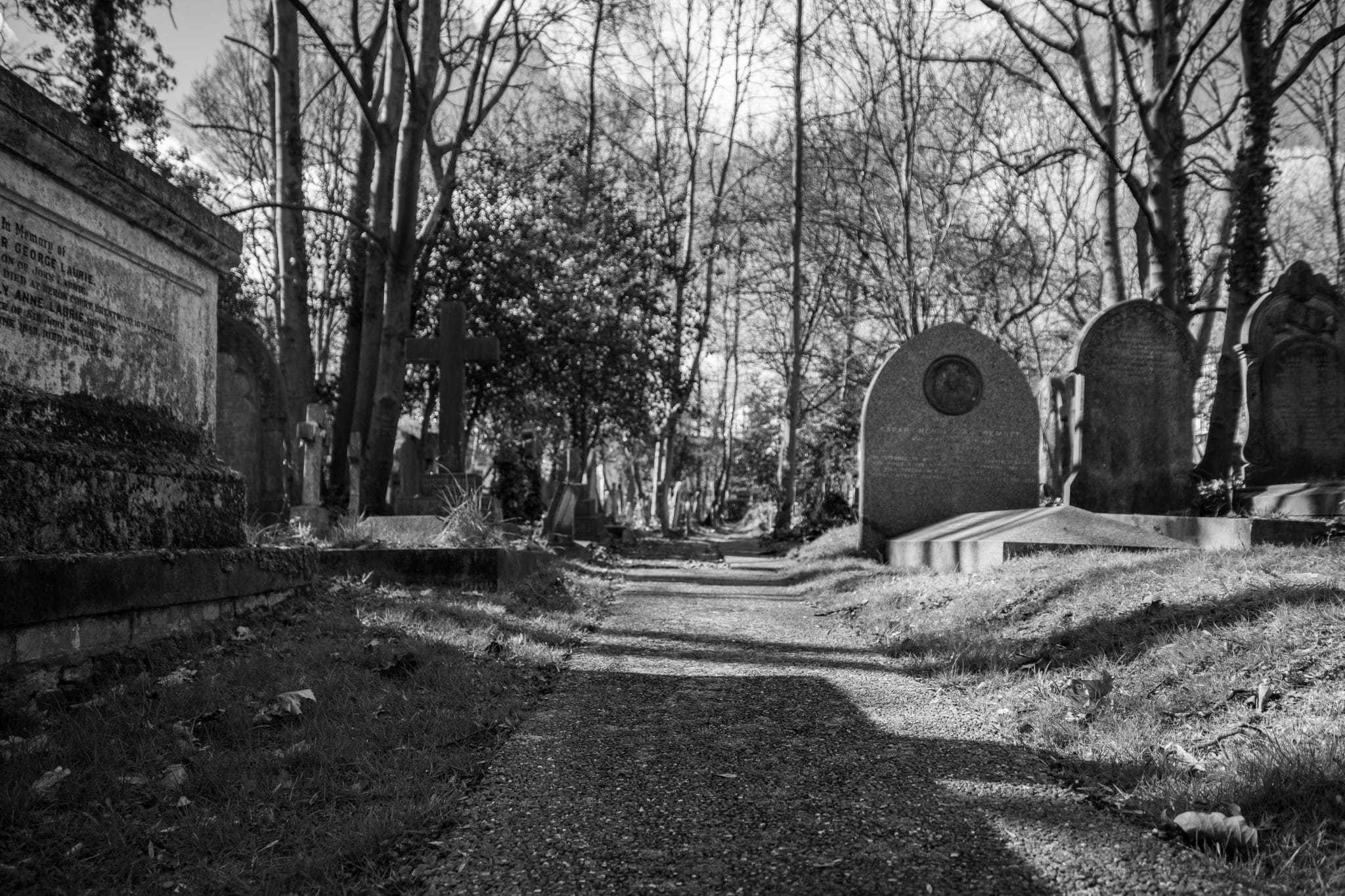Costs of cremations ‘soar’—Daily Mail
The cost of cremations has soared, according to a Daily Mail article published earlier this month (July 2020).
The paper reports that two-thirds of councils have raised their prices by 16 percent, making the average cost £775 (up from £752), despite limited numbers being able to attend funerals because of social distancing due to the Covid-19 pandemic.
Funerals are no permitted in churches, but numbers are still limited to allow for social distancing.
‘Pauper’s funeral’
The average cost of cremation was £470 ten years ago. Some councils have reduced their prices, while a quarter of them have frozen what they charge. Quoting from the BBC, the Mail article focused on a widower who compared the lockdown funeral service for wife to a “pauper’s funeral”. Only five people were allowed to attend Neville Wilson’s wife Denise’s send-off after she died of lung cancer in March.
The funeral procession was hearse only with no floral tributes and the family needing to take their own cars to attend the ceremony. The ceremony took place in Coventry, run by the city council there, and was cut from the usual 45 minutes to 15 minutes but still charged at the same price. Mr Wilson said it had felt “unbelievably bad”.
He added that the funeral could not have been any worse “if we’d tried”. Following his experience, Mr Wilson investigated which councils were and weren’t freezing costs in light of reduced service, wondering why Coventry City Council wasn’t doing so.
Upset because they weren’t allowed to attend
He said his two sons were extremely angry because of the funeral service and his wife’s family had been upset because they weren’t allowed to attend.
Councils have defended the price rises, which were agreed before the pandemic, which has also made putting them on more expensive. Service times have needed to be cut so that deep cleaning can be carried out between the services, and this factor has increased costs further.
Down to Earth, a project attached to the charity Quaker Social Action that supports people struggling with funeral costs, condemned the price rises.
The group’s acting manager, Lindesay Mace, told the Daily Mail that the increases in cremation fees were as much as six, seven and even 10 percent in some places since last year. She added that those kid of prices rises were beyond the means of many people, especially because incomes hadn’t risen by nearly as much.
Julie Dunk, the chief executive of the Institute of Cemetery and Crematorium Management, said councils had needed to invest in environmentally friendly equipment.
Finders International runs a funeral subsidiary fund for Public Health Act funerals. Local authorities or NHS trusts can now ask us for a funeral fund subsidy payment towards the cost of such funerals. These will be cases where there are no known next of kin (rather than someone’s next of kin simply refusing to pay). For more information or to apply for a subsidy, simply contact us at [email protected] or call freephone 0800 085 8796.
Hospital E-Conference July 2020
[restrict][cmvl-playlist video=73086 layout=nomenu searchbar=0 navbar=0 linksbar=0 showtitle=0 ][/restrict]
Thanks again for viewing our E-Conference. We would really appreciate your feedback. Let us know your opinions, questions you have and what topics you would like to see in future events. You will also be entered into a prize draw to win a £20 Amazon voucher! Click on the link to be taken to the feedback page…
https://form.jotform.com/201945047001343
PHFIS E-conference 28th May 2020
As you may be aware, we have postponed our Public Health Funerals Conference until 13th May 2021.
In the meantime, we will be holding a bite-sized e-conference that will be available online for you to watch from 10.30am on the 28th May.
To view, you will need to sign up as a member, which you can do here.
Finally, please stay safe and we will beat this.
[restrict]
[cmvl-playlist video=73059 layout=nomenu searchbar=0 navbar=0 linksbar=0 showtitle=0 ]
Croydon Council supporting residents facing funeral poverty during COVID-19 crisis
In a recent article published in The Thornton Heath Chronicle, it was highlighted that Croydon Council announced as a response to the COVID-19 crisis that they will be reducing cremation costs for bereaved families within their borough facing funeral poverty. This reduction in direct cremation costs will withstand for the period of 10 weeks, assisting not only those facing funeral poverty, but further aiding the death management process within the borough.
Croydon has developed and trained 12 volunteer redeployees to assist with the increased demand for death registration. The online tool used to train volunteers has been developed by Croydon and is being shared pan-London and beyond. This increase in redeployed volunteers has increased capacity from 67 to 290 possible registrations per week.
The full list of announced implementations this month, designed to support Bereavement services can be found at: The Croydon Council Cabinet Meeting Agenda for the 11th May 2020.
The article also stated that in normal circumstances, Croydon council oversees around 300 burials annually. With no new graves available at cemetery sites, the council has had to offer the reuses of graves where no burial has occurred for at least 75 years, extending to circumstances where the grave is unvisited or neglected.
Croydon is the lead borough for the South London coronial area (made up of Croydon, Bromley, Bexley and Sutton) and is also a member of the London Mortality Planning Group that has established a mortality planning group for the south London area made up of representatives involved in the death management process.
Within their most recent cabinet meeting, the members will record its thanks to all frontline and support service staff who have continued to provide vital services across the borough. Such thanks extend to the organisations, staff and volunteers across Croydon, covering voluntary and community groups, including those contributing to bereavement services within the borough.
To find out more, visit: https://www.croydon.gov.uk/
The PHFIS is intended as a guide for local authorities and hospitals who deal with public health funerals. If you would like to learn more about the PHFIS or require assistance, you can visit our website here. Alternatively, you can telephone: +44(0) 20 7490 4935 or email: [email protected]
Royal London finds funeral spend increasing
At a time when Local Authorities are under more scrutiny than ever before, the 2020 Public Health Act Funerals Conference is well placed to bring all parties together to discuss current provision, look at solutions and prepare for the future.
The recent Royal London report found that Local Authorities have spent in excess of £6.3m on on PHA funerals in the financial year up to March 2019.With one council, Birmingham, providing funerals for 387 residents in the year.
The report also highlights that there is no minimum standard for funerals provided. Royal London has called for the introduction of a minimum standard that allows families to attend a funeral and that ashes are returned to next of kin after a cremation, free of charge.
The Church of England General Synod will also be debating the matter and parliament have also made noises about change. The Government will increase the amount of the Funeral expenses payment in April from £700 to £1000. Whilst this is welcome, the amount paid still will not cover the cost of a basic funeral which means that the bereaved may have to turn to the Local Authority to provide a service.
David Lockwood, who runs the Public Health Funerals Information Service (PADSN) and organises the annual PHA Funeral Conference in association with Finders International said “I welcome the Royal London report and its call for a minimum standard”. He continued “it’s clear that staff work hard to provide a dignified service for the deceased, but they are put under financial constraints, a minimum standard will at least give them a framework they can follow. This will also end the postcode lottery meaning that the bereaved will know what they can expect.”
David is calling on all interested parties to attend the forthcoming PHA Funerals Conference at the Victoria Park Plaza Hotel on the 14th May. David stated that “it is an ideal opportunity for those seeking change to meet the Local Authority staff that provide the service, to see their compassion and commitment and to forge links to work together to improve the quality of service we give”.
Delegates can sign up now via the online form found here
Case Study D
[restrict]Female in her 70’s died at her home.
Due to hoarding at property difficult to establish eligible heirs/NOK.
Large estate of over £300,000. Referred to Finders to trace eligible heirs. Next of kin found in New Zealand. Also found that deceased had a very famous grandfather and a fascinating family history. Solicitors traced who found a Will. Matter passed onto Solicitors.
Benefit/Outcome – Minimal work for NBC and no financial costs. Estate was divided as per the deceased’s wishes. [/restrict]
Case Study C
[restrict]
Male in his 60’s in private rented accommodation.
Estate value of up to £30,000.00
No next of kin details available, so referral made to Finders to trace NoK.
Brother was traced – he then took on responsibility of arranging his brothers funeral and then administering the estate.
Benefit/Outcome to Council – Minimal work and no financial cost. [/restrict]
Case Study B
[restrict]Widower in his 80’s died in local hospice.
No children or other relative known Estate to the value of approximately £12,000.
Referred to Finders to trace eligible heirs. Brother found plus nieces and nephews. Finders dealt with heirs and paperwork, then passed to Solicitor.
Benefit/Outcome – Minimal time for NBC & ease of recovering funeral costs. [/restrict]
Case Study A
[restrict] A man in his 70’s died in social housing.
Only Post Office account and DWP letter with NI number found.
Referred to Finders to trace family – Cash in PO account covered funeral costs.
Despite a thorough search and trying different variations of name of deceased on this occasion Finders were unable to find any birth or adoption record of the deceased – therefore making tracing any next of kin impossible.
Benefit/Outcome – Had there not been any money in estate could have applied to Finders for their Funeral Fund.[/restrict]
PHA Funerals - "Unfit for purpose"
The legislation that gives local authorities the statutory powers to carry out funerals is not fit for purpose.
That’s what council officers told us at the second Finders International Public Health Act Funerals conference, which took place on 2nd May this year, and was attended by representatives of councils from all over England and Wales.
The legislation, which has been in place for more than thirty years, does not consider how attitudes have changed towards funerals in society and how we carry out funerals. Families are more fragmented and don’t necessarily feel obliged to make funeral arrangements for next of kin they may have had little or no contact with. Given recent rises in the amount of funerals undertaken by local authorities, it is only set to increase in the near future.
Minimum standards
Council officers at the conference felt that any reform should set out a minimum standard, although they could not agree on how this might be enforced. Some local authorities opt to cremate whilst others bury, but there is no standard practice. Should legislation make sure a deceased person’s wishes are adhered to (if they are known) and how would this be done?
As the Competition and Markets Authority is carrying out a review of the funeral industry in the wake of rising costs and is proposing a funerals regulator, perhaps the role of ensuring standards could be placed with them?
The majority thought that the word ‘paupers’ should not be used, with some officers reporting they found it to be offensive. Officers felt that the word does not show the deceased dignity and respect.
Little to no funding
Another point raised at the conference is that there is little or no funding within authorities for the provision of statutory funerals. Further discussions took place about a national funeral fund, with a radical suggestion that there should be a state grant paid from National Insurance contributions.
Certainly, everyone agreed that the Department of Work and Pensions (DWP) Social Fund is not fit for purpose, and a new way of state assistance needs to be found. The vast majority reported how difficult it is for people to claim and how little they receive to pay towards funerals from the DWP.
Staff have called for better awareness of their role by financial institutions. Once a person dies, GDPR does not apply to the deceased. Many officers reported their experiences where banks and other institutions make it extremely difficult for them to discover if the deceased left any assets.
Access to online accounts
They also said it was difficult to access the deceased’s emails and social media accounts, as sometimes emails and social media accounts can help officers trace families easily and quickly.
David Lockwood, Finders International Public Sector Development Manager and a former Public Health Act Funerals Officer, said: “It’s clear how dedicated council officers are in providing the best service possible despite the severe financial restrictions in place.
“These officers deserve the recognition for the service they provide to their communities and their continued dedication. We at Finders International do everything possible to support them with our free events and the advice we offer on our website, and we will continue to do so.”
Finders International has a funeral fund that can be used by public sector bodies to subsidise public health act funerals in cases that meet the criteria. Find out more about our service here.







